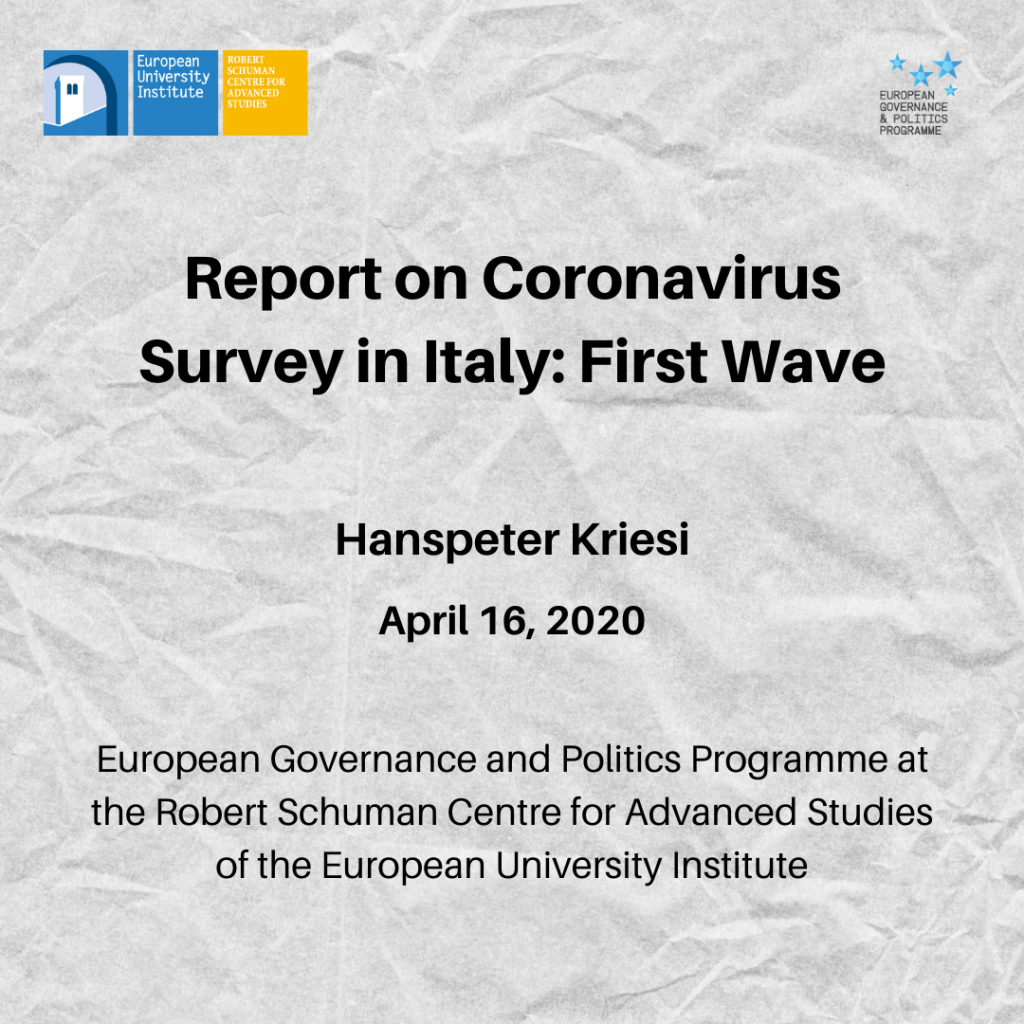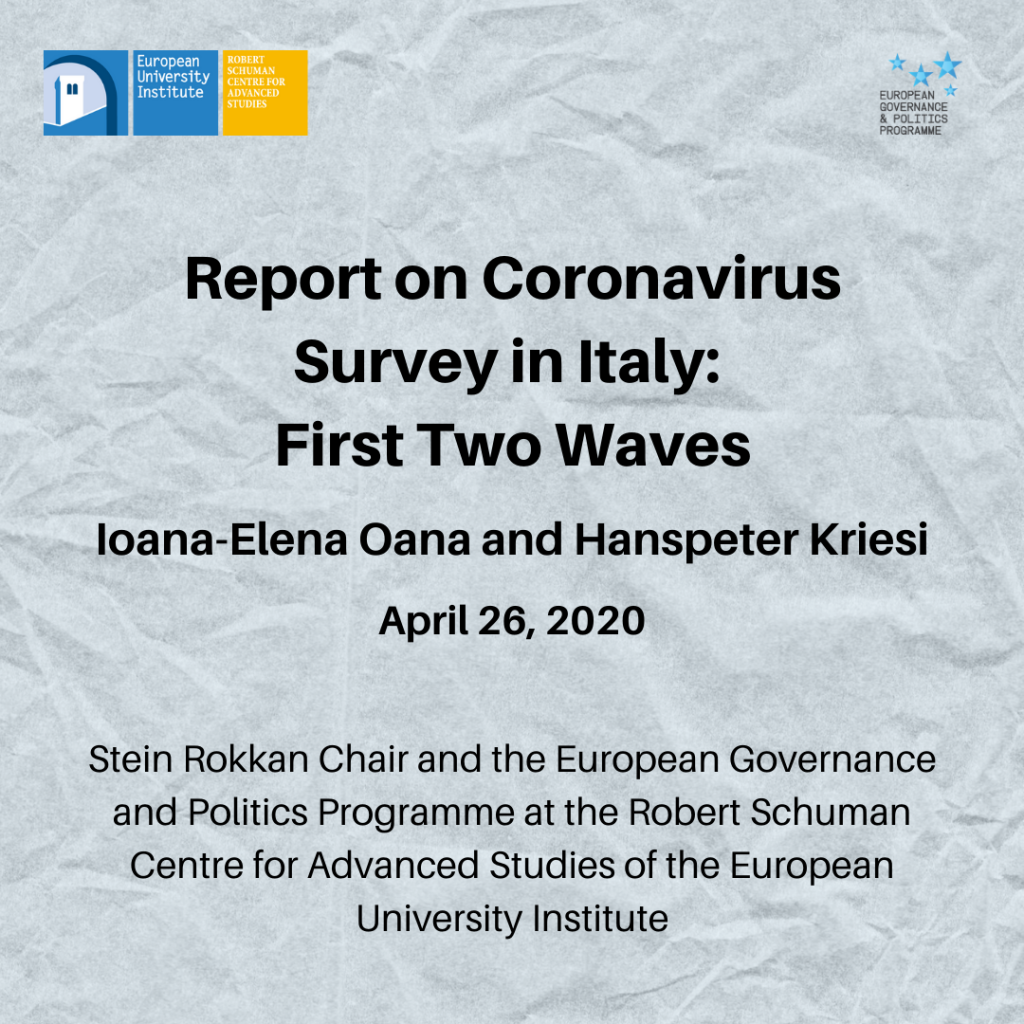The ERC Synergy Project SOLID is a collaborative project hosted at the European University Institute (EUI), London School of Economics and Political Science (LSE), and the University of Milano and led by principal investigators Hanspeter Kriesi (EUI), Waltraud Schelkle (LSE) and Maurizio Ferrera (UniMi).
The project website can be accessed here.
Focus on COVID-19:
The SOLID project is currently engaged in several data collection efforts on the coronavirus crisis. Among these, a representative two-wave panel survey was conducted online by IPSOS on 28-30 March and 15-17 April 2020 on a total sample of 1352 respondents (64.5% wave-to-wave retention rate). Detailed reports on the results of this survey can be found here and here.
Agreement with government health measures on 28-30 March and 15-17 April

Assessment of the government’s economic and health response and pessimism with economic and health estimates on 28-30 March and 15-17 April

About the Project
The SOLID project aims to provide an original general theory of political crisis through the study of the several crises that have hit the EU in the last decade. In doing so, it aims to understand how the severe crisis situation can go together with resilience from the EU. Covering developments since 2009, SOLID aims at assessing the overall soundness of the EU’s foundations in the wake of the political crisis. In order to capture both disruption and resilience, the project proposes to disentangle the ‘deep’ political dimension of the crisis from more policy-specific challenges and analyze it through a ‘coalition-centered approach’. How did coalitions unravel and (re-)establish themselves in order to address the sectoral crises? How deeply has such coalition formation under duress impacted on established channels of representation? Rooted in political economy, comparative political sociology, and policy analysis, SOLID collects extensive data on processes, conflicts, and coalitions through qualitative and quantitative methods, including innovative techniques.
The Observatory for Political Conflict and Democracy

Data and analysis tools produced by the SOLID project are available through The Observatory for Political Conflict and Democracy (PolDem). The data platform produces and houses data on protest events, election campaigns, issue-specific public contestation, and public opinion covering a wide range of European countries over a long period of time. It developed as an extension of the SOLID project, as well as other previous and ongoing projects by the principal investigators Hanspeter Kriesi at the European University Institute, and Edgar Grande and Swen Hutter at the Center for Civil Society Research, Berlin. The Observatory aims to update and disseminate data within the scientific community and wider public, and to provide users with the relevant documentation, codebooks, and tools to interpret the data.



